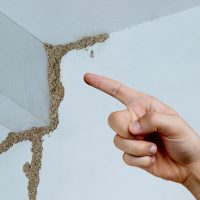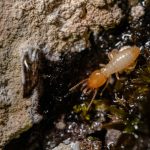NEA’s Guidelines for Pest Control in Singapore
Pest control in Singapore is not a luxury but a public health requirement, particularly in urban Singapore.
Importantly, the National Environment Agency (NEA) develops guidelines to ensure that pest control activities are safe, effective, and environmentally sustainable. For homeowners and entrepreneurs, it is crucial to understand these regulations to maintain a pest-free environment without incurring penalties.
Therefore, in this post, we’ll provide an overview of NEA’s pest control and management guidelines to help you stay compliant and adhere to best practices.
Role of NEA in Pest Control in Singapore
The NEA plays a significant role in controlling and managing pests to maintain public health, ensuring that everyone lives in a healthy and safe environment. This critical role of NEA must provide you with assurance of the health and safety of your environment.
Typically, the climate in Singapore favors the infestation of pests, which vary from mosquitoes, rodents, and cockroaches. These pests spread diseases. Notably, apart from the health implications, some of these pests, such as rats, also cause property damage.
Therefore, to facilitate the overall safe and effective prevention and control of pests, the NEA licenses pest control operators and regulates the use of pesticides.
Specifically, as the regulatory authority, they ensure the effective enforcement of regulations through education and research, thereby restricting the propagation of vector-borne diseases.
Key Pest Control in Singapore Requirements and Regulations
1. Licensing of Pest Control Operator
It is a legal requirement that the NEA license all pest control service providers in Singapore.
Furthermore, the technicians are to be trained and certified to demonstrate their proficiency in the safe handling of pesticides as well as in the application of efficient control measures.
Notably, operators who use NEA-approved pesticides must adhere to stringent guidelines regarding application, storage, and disposal.
2. Regulatory Requirements of Individual Industries
Some industries, such as food establishments, are highly regulated. They are primarily required to conduct regular pest surveys, maintain accurate records of services, and respond promptly to pest infestations.
Notably, non-compliance with these specific requirements can result in immediate consequences, including fines, closure, or adverse publicity, which can lead to loss of customer confidence and a negative impact on the market.
3. Integrated Pest Management
The NEA encourages implementation of the Integrated Pest Management program that incorporates both preventive and curative measures for pest control. Mainly, IPM entails:
- Sanitation: Elimination of food and water sources that render the premises conducive to pests. For instance, premises should have measures in place to drain stagnant water and prevent mosquito breeding.
- Exclusion: Sealing the openings to discourage the pests from entering the buildings.
- Chemical and Biological Controls: Resorting to the use of pesticides as the last option and choosing ecological control methods.
4. Environmental Sanitation Regime
The Environmental Sanitation (ES) Regime, established following past occurrences of infectious disease outbreaks, stipulates minimum guidelines for riskier establishments, such as food courts, preschools, and shopping malls. The establishments are required to design and implement an ES program that encompasses:
- Regular disinfection and sanitization of high-touch areas.
- Detailed half-yearly thorough cleaning of areas that are difficult to access.
- Six-monthly detailed inspections.
Notably, the regime entails appointing an environmental control coordinator or officer to ensure compliance, responsibility, and consistency.
Mainly, the officers play a critical role in ensuring the implementation of the Environmental Sanitation Regime, so that all measures to prevent pest infestation and maintain a hygienic and clean state are followed. They are also responsible for verifying adherence to the regime, monitoring all measures being implemented, and maintaining a record of all pest control measure activities.
Consequences of Non-Compliance
Failure to comply with NEA regulations is considered a grave offense. Therefore, if you fail to comply, you are most likely to face any of the following penalties, including fines, stop-work orders, and prosecution for egregious non-compliance. The severity of these penalties underscores the importance of strict regulatory compliance.
For instance, premises found to have mosquito breeding will be fined, regardless of whether the breeding was intentional or not. Notably, the penalties can have a significant impact on homeowners and businesses; as such, there is a need to obey the law and ensure that there are no pests.
Therefore, to comply with NEA pest control policy, always maintain proper records of all actions taken against pests and coordinate with licensed pest control service providers to prevent any legal issues.
Get a Professional Pest Control Services Provider
Engaging a professional pest control service provider is not only beneficial, but it’s also a requirement. Their technical expertise ensures that pest control measures comply with up-to-date legislation, giving homeowners and businesses confidence in their services. This should make you appreciate the value of the experience and assurance of compliance that professional pest control services provide.
First, their technical expertise ensures that pest control services comply with the law, a factor that earns them the trust of homeowners and businesses. Second, professional pest control service providers often provide regular maintenance and monitoring services, which can help prevent future infestations and ensure long-term compliance with NEA regulations.
Conclusion
The NEA regulations on pest control in Singapore promote general public health and ensure good hygiene in Singapore.
Therefore, being aware of these laws, you will be able to safely and professionally keep your property free from pests within the given legal framework.
Importantly, to be compliant, you need to hire a competent pest control company that will ensure the entire process is effective and will minimize the risks for all parties involved.
Lastly, here at Eminent Pest Control, we adhere to NEA regulations to ensure our clients get high-quality pest control services.








































